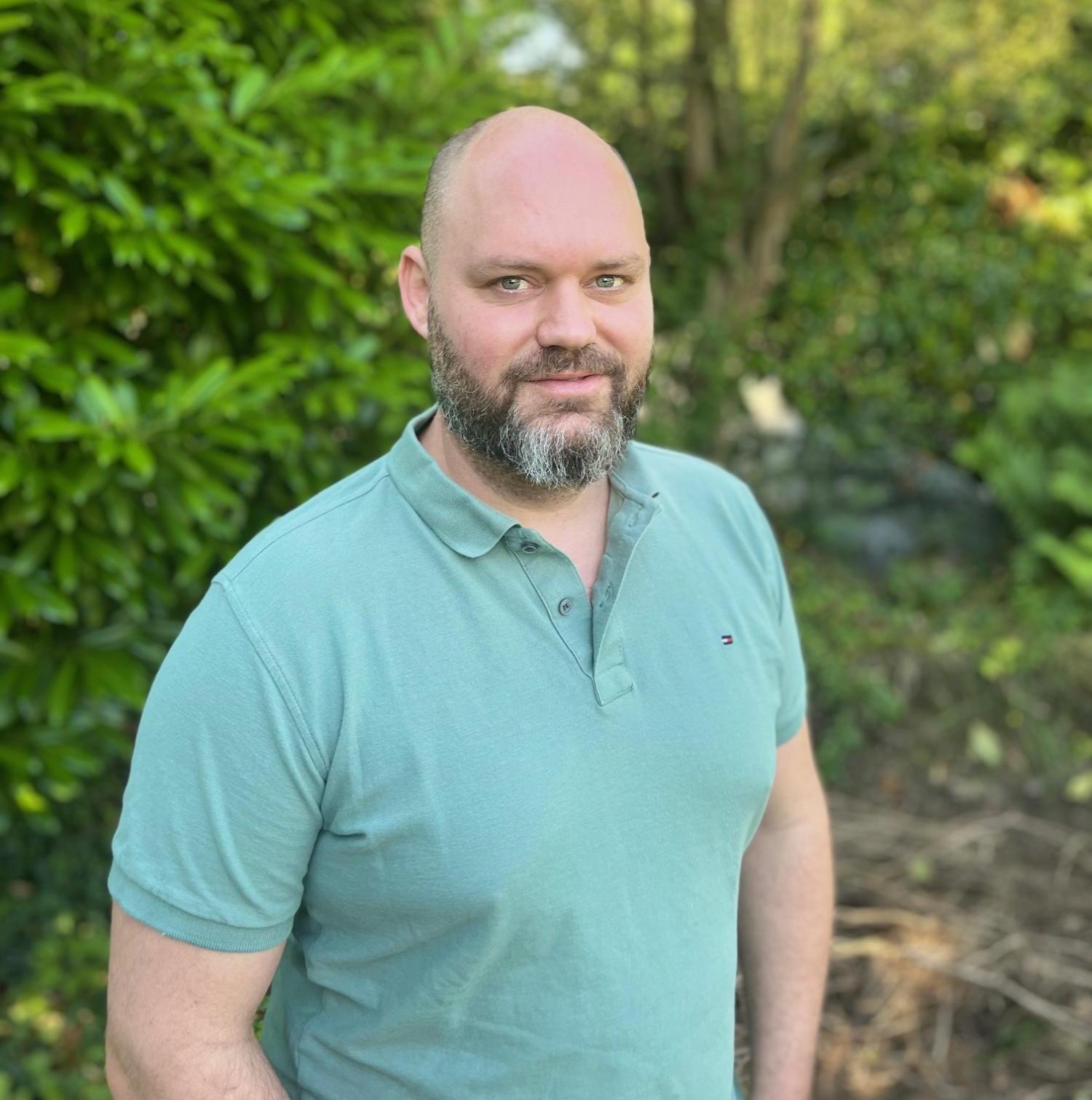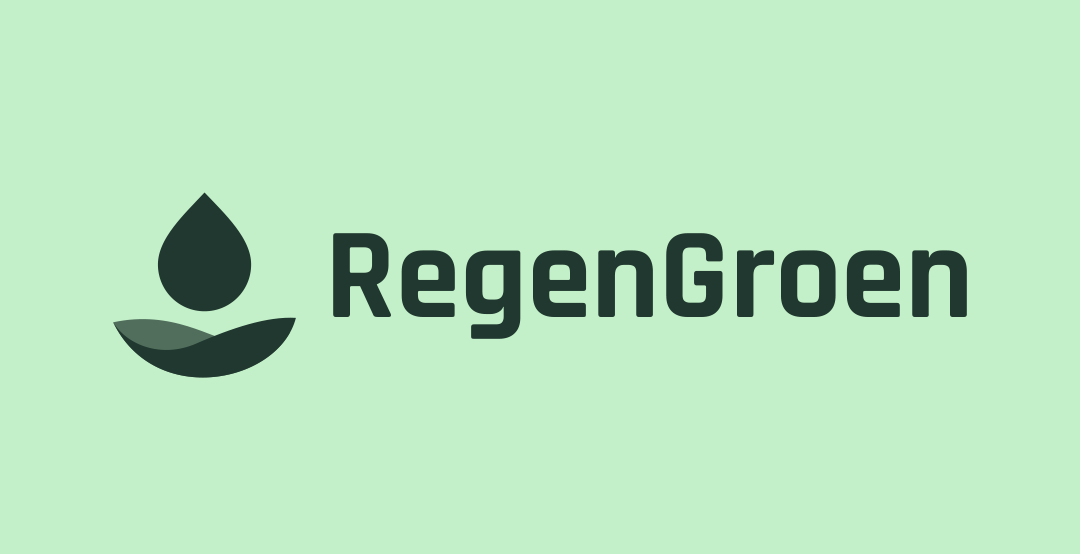Joep Gregoire from Heerlen is founder of RegenGroen. This company deals with climate-adaptive solutions, such as the reuse of rainwater. He gives a glimpse into his world of sustainable initiatives and shares his vision for a greener future.

Background
When Joep went to help with the floods in Valkenburg in 2021, he came in contact with a group of veterans. "Being a veteran myself, I decided to join. On a voluntary basis, Veterans Support Group Parkstad helps people in need and is committed to helping people with a distance from society. This charity has always stayed with me."
After the floods, Joep realized that flooding is a growing problem and that more needs to be done with rainwater. This led to the idea of installing rain barrels with the veterans, but he soon realized that this needed to be done on a larger scale.
Green by Rainwater
There are three problems: rainwater flooding, heat stress and a future shortage of drinking water. According to Joep, that future is already here. "I started working with rainwater systems to collect rainwater. This water can be reused for toilets, washing machines and more. Companies can even use it in their production processes and, of course, it is suitable for watering greenery."
To complete the circle, something must also be done with greenery. "Greenery helps reduce heat stress, holds water in the soil and improves soil quality. I see it as a circle: rainwater causes greenery to flourish, and greenery in turn helps capture and retain rainwater, partially offsetting flooding. This is how the whole rain-green concept came about."
Often one situation is not the other, which is why Joep started RegenGroen. "One person installs a green facade, another installs a green roof or a rainwater system. These different systems affect each other. Within the bigger picture, I look at the possibilities, work them out technically and eventually - together with partners - also do the implementation. It's a total solution."

Why are you engaged in sustainable business?
"Doing something good for another has always been in me. For fourteen years I was a naval officer and spent time in many countries around the world. I helped people in Haiti and Afghanistan, among other places, and was able to contribute something in that way."
"At some point I made the step to civilian society. Even in that I have always been busy doing good for the world, whether that is sustainability or creating jobs in Africa. That intrinsic motivation to make the world a little bit nicer, in whatever aspect, has always been there."
"That intrinsic motivation to make the world a little more beautiful, in whatever aspect, has always been there."
"Sustainability often looks at climate change and nature, which is true. But I look at sustainability in a much broader context. To me, a sustainable solution is a long-term solution; it is not a band-aid. It's not just about planting greenery or separating waste for the environment. I really firmly believe that if we would look at it from a sustainable perspective, in a broader context, we would find solutions that pay off in the long run."
"I also see being sustainable as an investment in yourself, in your own business or your own family. If you want to continue the world in a pleasant and comfortable way of living, you will have to look at it that way. Now people are often short-sighted about it, it's too difficult or too expensive. And that's a shame."
"If you see, for example, the damage caused by floods, you find out that investments in sustainability actually make money in the long run. This is just the beginning!"
What, in your opinion, is needed to accelerate the path to a sustainable society?
"It starts with awareness among more people. What if we don't take action? Then what are the consequences? We need to show that more. I also think that government regulations are outdated. It needs to be better suited to the challenges we face."
"Look at climate adaptation measures. Currently, rainwater is still mostly seen as a nuisance. There are subsidies for dealing with rainwater nuisance, but storing rainwater often falls outside of that."
"On the future drinking water shortage, the government is not at all anticipating. Indeed, current regulations ensure that the necessary measures can hardly be implemented. Because the regulations only deal with flooding and are not at all concerned with drinking water shortages. We really need to take a closer look at that."
"We need to think more forward-looking. Not just what something delivers now, but what it will give us in 5, 10 or 20 years. If you invest in a rainwater system now, you might not benefit much in the next two years. But drinking water prices are going up tremendously, so in five or 10 years we're definitely talking about a payback."
"The question is also: will you still be able to just flush your toilet later? We all think that's supernormal now and can't imagine there will be times when water will become so scarce. But that's where it seems to be heading."

What do you contribute to a smarter, more sustainable and/or healthier Limburg?
"It's actually small things that, if we all did them, would still make a big difference. From separating garbage to leaving the car at home a little more often. But of course I also have a rainwater recycling system at home. With my company RegenGroen I try to make companies, and actually all of Limburg, more future-proof."
"It once started with rain barrels and veterans. That's still an important part. This fall we are going to place 300 rain barrels in Landgraaf. That way, in addition to sustainability, I try to contribute to corporate social responsibility."
Do you have any tips for other entrepreneurs/businesses?
"Make sure you prepare for the future. We just see that things are changing and we have to prepare for that as a society. This is mainly in sustainability, but things like self-reliance are also becoming much more important. For example, look at the war in Ukraine and gas prices. Suddenly the world is different and we are paying a lot of money for that. If we had invested in energy transition ten years ago, it would have saved us a lot of money now. The same will happen soon with greenery, with heat stress, but also with rainwater."
"We have to take into account scenarios we would rather not see and anticipate them. That would be my most important tip."